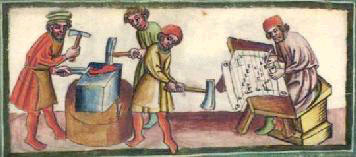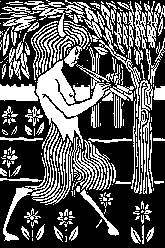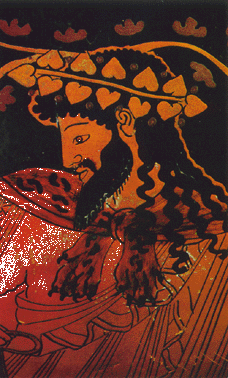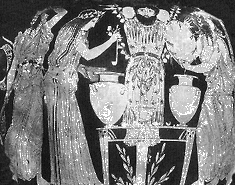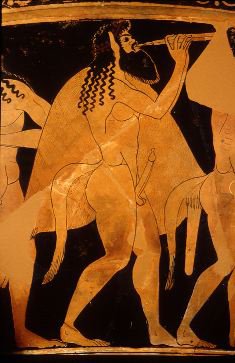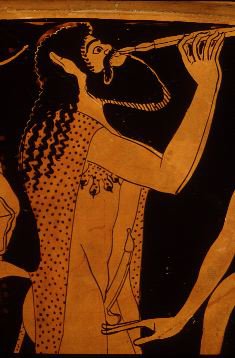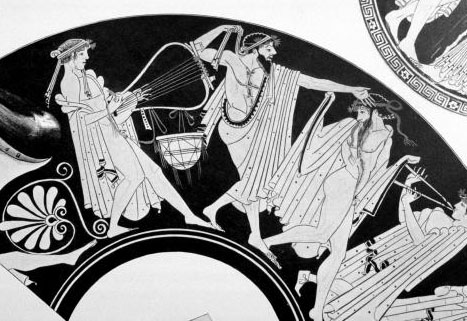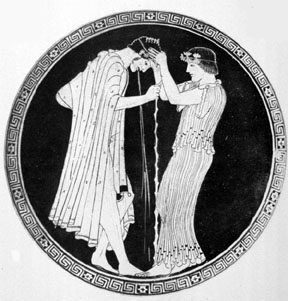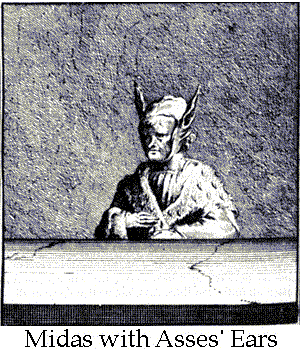Laughing and Mocking Jesus
See more history on the Laughing-Mocking Exercises
See Tom Burgess and the typical DEFENSE of musical mocking as Christian worship.
Donnie Cruz reports on the "worship" at Madison: Random Quotes connecting the Comic Fool, Jester, etc. with ancient paganism.
This is how the "MUSICAL" WORSHIP went. It started out with four men who were on the stage with the WORSHIP LEADER. They all sang the medley (this time the male singers overpowered the Praise Team for a change). The first ("traditional") service had the medley of the same songs listed in the worship guide, and I wonder if they were the same four men that performed this part of the program. [Can someone verify this?] Anyway, this PERFORMANCE received a big applause from the contemporary folks. [Let the reader know that the Madison body is fast becoming a clapping group. It claps just about every time there is anything that a non-church public gathering would do --
if it is a joke told in the sermon or if the WORSHIP LEADER motions the crowd to clap after a song.]
There were three "praise" songs that mentioned "dancing" [just imagine how receptive the youth-oriented group was/is to that thought]. (By the way, the list of "praise" songs, narrow as their message is, needs to be checked for accuracy in designating the page number of the song or its source. It is a fact that the individual does not have time to look for the song in any book as it is the intent of the MUSIC department for the people to look at the BIG WHITE SCREEN for just about everything and to rely on Keith's Praise Team for the music. This may be the reason for but I did not find the following songs in the "red notebook" as marked "*" beside: (a) We Will Worship the Lamb of Glory, (b) I Love To Be In Your Presence, (c) River Is Here. With the exception of the Communion and contribution and outside of the sermon and the activities following that, the "core" MUSICAL WORSHIP lasted from 10:30 to 11:18am. It was obvious that the musical performers were enjoying themselves to the fullest.)
He exclaimed: WE MUST BE A SPIRIT-LED CHURCH! (THE AUDIENCE APPLAUDED [learned quickly, didn't it?]!)
The pictures DO NOT represent anyone living or dead. Again, nothing here is personal: our purpose is to show that the UNIVERSAL message of MUSIC AS WORSHIP as well as comedy, acting, acrobats and all of the performing arts were believed to have come from Satan and all of them historically speak of perverted or polluted principles.Why would a church adopt such practices and give them a SECOND INCARNATION as spiritual?
Paul's unique "worship" concept is to give heed to or pay attention to Christ by giving attendance to the Word. We worship whatever we GIVE HEED TO and if it is the preacher's joke or the "musicians" performance then they are SIPHONING OFF worship due God: and the paying audience loves to have it so.
However, prophecies are fulfilled right before your eye:
We have noted, Donnie, the universal connection between MUSICAL PERFORMANCE in religion and the homosexual, emasculated priesthoods serving a female goddess. Modern science also knows that LAUGHING is a mind control device used by many theatrical performers to CLOSE THE SALE. However, the Bible makes it clear that all MUSICAL terms are related to destructive concepts.
Setting the Stage for Perverting Jesus
Zeus and Dionysus were worshiped as the Abomination of Desolation in the Jerusalem Temple. The building of the GYMNASIUM marked the victory of Hellenism. This is why the clergy believed that MESSIAH would be Dionysus and went out to see John hoping he wore the SOFT clothing of the king's Catamite. The Babylon Whore of Revelation 18 will again see the false clergy lusting for the victory of Dionysus which would mean the victory of Lucifer or ZOE known as the BEAST and the "female instructing principle." The Greek Version (LXX) identifies Eve as ZOE.
Hoping that Jesus was Bacchus or Dionysus:
But whereunto shall I liken this generation? It is like unto children sitting in the markets, and calling unto their fellows,
And saying, We have piped unto you, and ye have not danced; we have mourned unto you, and ye have not lamented. Mt.11:17 Mt 11:16
Mourned is:
Threneo (g2354) thray-neh'-o; from 2355; to bewail: - lament, mourn.
Threneo (g2354) thray-neh'-o; from 2355; to bewail: - lament, mourn.Threnos (thrnos). The Greek term for a dirge sung by a chorus to the accompaniment of flutes, either at the burial or at the funeral feast. See Funus; Musica. Perseus Greek Dictionary
Alalazo (a214) al-al-ad'-zo; from alale, (a shout, "halloo"); to vociferate, i.e. (by impl.) to wail; fig. to clang: - tinkle, wail
THOUGH I speak with the tongues of men and of angels, and have not charity, I am become as sounding brass, or a tinkling cymbal. 1Co.13:1
Thriambeuo (g2358) three-am-byoo'-o; from a prol. comp. of the base of 2360 and a der. of 680 [touch or set on fire] (mean. a noisy iambus, sung in honor of Bacchus); to make an acclamatory procession, i.e. (fig.) to conquer or (by Hebr.) to give victory: - (cause) to triumph (over).
Myth experts such as Joseph Campbell note that when people LOOSE THEIR footing and confidence in their religion they "CRACK AWAY" and fall back into ARCHAIC forms including the use of drugs to replace what has been LOST.
In the collection of notes below you will see that the ARCHAIC insists that priests, prophets and musicians have some unusual emotional, physical or sexual abnormality.
We LAUGH AT clowns because they are FASCINATING to behold like the SERPENT: at once amazing and repulsive. Since the end-time KIRKE or church will be ruled by THE QUEEN OF HEAVEN or the Holy Whore of Babylon we need to look to Babylon:
The Story of Adam and Eve (cf Book of Enoch)
4 Then Satan, the hater of all good, when he saw Adam thus alone, fasting and praying,
appeared unto him in the form of a beautiful woman, who came and stood before him in the night of the fortieth day.
12 "Then again, thou art as yet but a youth; end not thy youth in this world in sorrow;
but spend the days of thy youth in mirth and pleasure. For thy days are few and thy trial is great.
Be strong; end thy days in this world in rejoicing. I shall take pleasure in thee, and thou shall rejoice with me in this wise, and without fear.Second Book of Adam and Eve CHAP. IV.
Adam sees the Devil in his true colors.
1 THEN God ordered Satan to show himself to Adam plainly, in his own hideous form.
2 But when Adam saw him, he feared, and trembled at the sight of him.
3 And God said to Adam,'Look at this devil, and at his hideous look, and know that he it is who made thee fall from brightness into darkness, from peace and rest to toil and misery.
4 And look, 0 Adam, at him, who said of himself that he is God! Can God be black? Would God take the form of a woman? Is there any one stronger than God? And can He be overpowered?
5 "See, then, 0 Adam, and behold him bound in thy presence, in the air, unable to flee away! Therefore, I say unto thee, be not afraid of him; henceforth take care, and beware of him, in whatever he may do to thee."
The Babylonian Patron God of Music: Lamech's Second Incarnation:
These ancient documents give specific attention to the female "queen of Heaven" (Eve, Sophia, Zoe, Mary) getting the male god drunk or distracted and stealing the ME or human skills of deception. They are a record of how the seed of Satan hitchhiked on the Ark and immediately began rebuilding the "music city" concept.
"According to the legend, Oannes (Ea) instructed Man how to build cities, to found temples, to compile laws, to survey the lands, and how to grow food. He also taught them mathematics, the sciences, and every kind of art.
"Apollodorus referred to Oannes and the Annedoti as "Musarus." The word "musarus" means "an abomination" in Greek just as "annedoti" means "the repulsive ones." In other words, the creatures credited with founding civilization were frankly described by the ancient Babylonian people, who revered them, as "repulsive abominations." ?
"If the tradition had been invented, a more normal attitude would be to glorify these creatures as splendid gods and heroes. Yet the fact that they chose to describe their ancestors this way argues for the authenticity of the account. It was the Babylonian tradition that they owed their knowledge to creatures who came up from the sea who were disgusting and loathsome to gaze upon. (From Ancient Fragments, by Isaac Preston Cory.)
The Holy Whore Got Grandfather Drunk and Stole the ME.
Inanna
(Ishtar) stole these and other ME from Ea, the
patron god or demon of music:
- Inanna placed the shugurra, the crown of the steppe, on her head.
- She went to the sheepfold, to the shepard.
- She leaned back against the apple tree.
- When she leaned against the apple tree,
- her vulva was wonderous to behold.
- Rejoicing at her wounderous vulva,
- the young woman Inanna applauded herself.
- She said:
- "I, the Queen of Heaven, shall visit the God of Wisdom.
- Descent into the underworld!
- Ascent from the underworld!
- The art of lovemaking!
- The art of kissing the phallus!"
- He gave me the holy shrine.
- He gave me the holy priestess of heaven.
- He gave me the resounding musical instrument.
- He gave me the art of song.
- He gave me the art of the elder.
- Let the little children laugh and sing.
- Let all Uruk be festive!
- Let the high priest greet the Boat of Heaven with song.
- Let him utter prayers.
- Let him slaughter oxen and sheep.
- Let him pour beer out of the cup.
- Let the drum and tambourine resound.
- Let the sweet tigi-music be played.
- Let all the lands proclaim my noble name.
- Let my people sing my praises."
See how Sophia and Zoe forced the "minor jehovah's" to form a musical worship team to worship SOPHIA AND ZOE, of course.
See Enoch to see why ten-thousand angels will come to defeat the end-time Babylonian religion (Rev. 18).
The Holy Whore Makes you Laugh but Kills You: She has Sex with you because Music and SEXUALITY and LAUGHTER is her instruments or weapons: Modern Science Agrees:
> "Sex feels good, that is why people do it for more than simply procreation. Laughing is enjoyable, for that reason people search for things that amuse them. Touch is pleasing, therefore the massage business thrives. These things can become addictive due to the pleasurable effect that they produce. People have been exercising obsessively for a long time but only recently was an idea postulated as an explanation.
"Laughter often begets laughter and in large doses, has the ability to make one feel high. We do what makes us feel good; human beings are naturally pleasure seekers. It is said that with drugs your first high is the best and never able to be duplicated.
What keeps people using drugs, despite the downfalls associated with use, is that eternal quest for that ethereal feeling that they experienced the very first time.
Pleasurable activities, like exercising, sex, laughter, touch, etc. can all become dangerously addictive. Some people will do anything and everything for 'that fix".
"So what is it that makes people search for the next high, or feel good experience? Exercise, sex, laughter, and touch all produce positive effects within the body via chemicals in the brain. These chemicals are called endorphins, a mixture of the two words endogenous, meaning from within the body, and morphine, a powerful pain fighting drug that is also used and abused for recreational purposes. Endorphins are the body's internal pain regulators. From Source.
(3) Such an opinion we should detest and execrate, while we ought everywhere to flee far apart from those that hold it; and in proportion as they vehemently maintain and rejoice in their fictitious doctrines, so much the more should we be convinced that they are under the influence of the wicked spirits of the Ogdoad,--
just as those persons who fall into a fit of frenzy,
the more they laugh, and imagine themselves to be well,
and do all things as if they were in good health [both of body and mind], yea, some things better than those who really are so, are only thus shown to be the more seriously diseased.
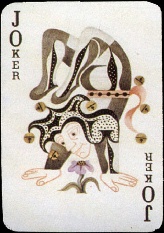
> The Cave of Treasures
Of the Transmission of the Art of Playing the Harp, that is to say of Music and Singing and Dancing.
Y�b�l (Jubal) and T�balkin (Tubal-Cain), the two brethren, the sons of Lamech, the blind man, who killed Cain, invented and made all kinds of instruments of music.
- J�b�l made reed instruments, and harps, and flutes, and whistles,
- and the devils went and dwelt inside them.
- When men blew into the pipes, the devils sang inside them,
- and sent out sounds from inside them.
T�balk�n made Fol. 12a, col. 2 cymbals, and sistra, and tambourines (or drums). And lasciviousness and fornication increased among the children of Cain, and they had nothing to occupy them except fornication--now they had no obligation to pay tribute,
and they had neither prince nor governor--and eating, and drinking, and lasciviousness, and drunkenness, and dancing and singing to instruments of music,
and the wanton sportings of the devils, and the laughter which affordeth pleasure to the devils, and the sounds of the furious lust of men neighing after women. See Enoch and Second Peter
And Satan, finding his opportunity in this work of error, rejoiced greatly, because thereby
he could compel the sons of Seth to come down from that holy mountain.
